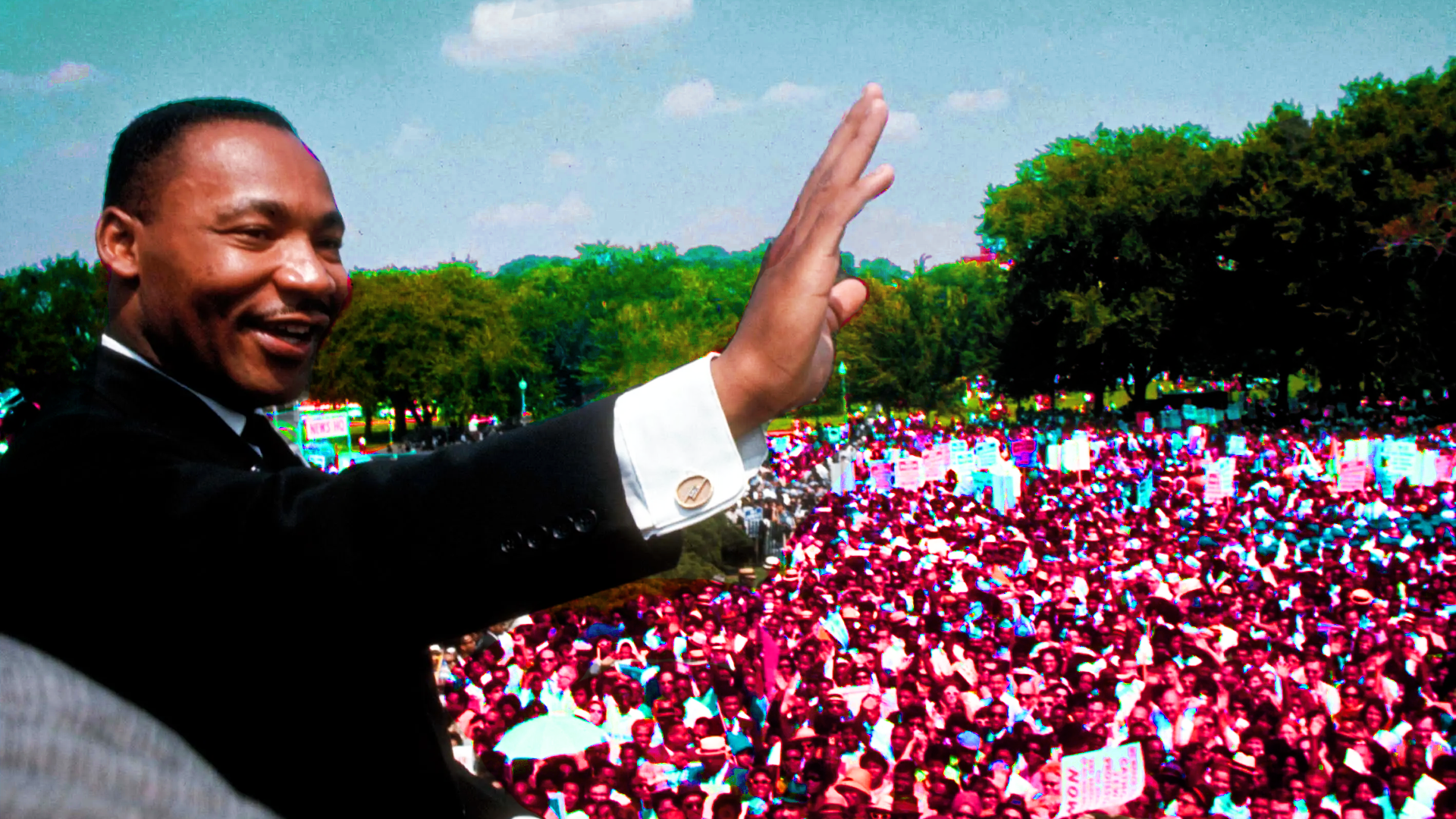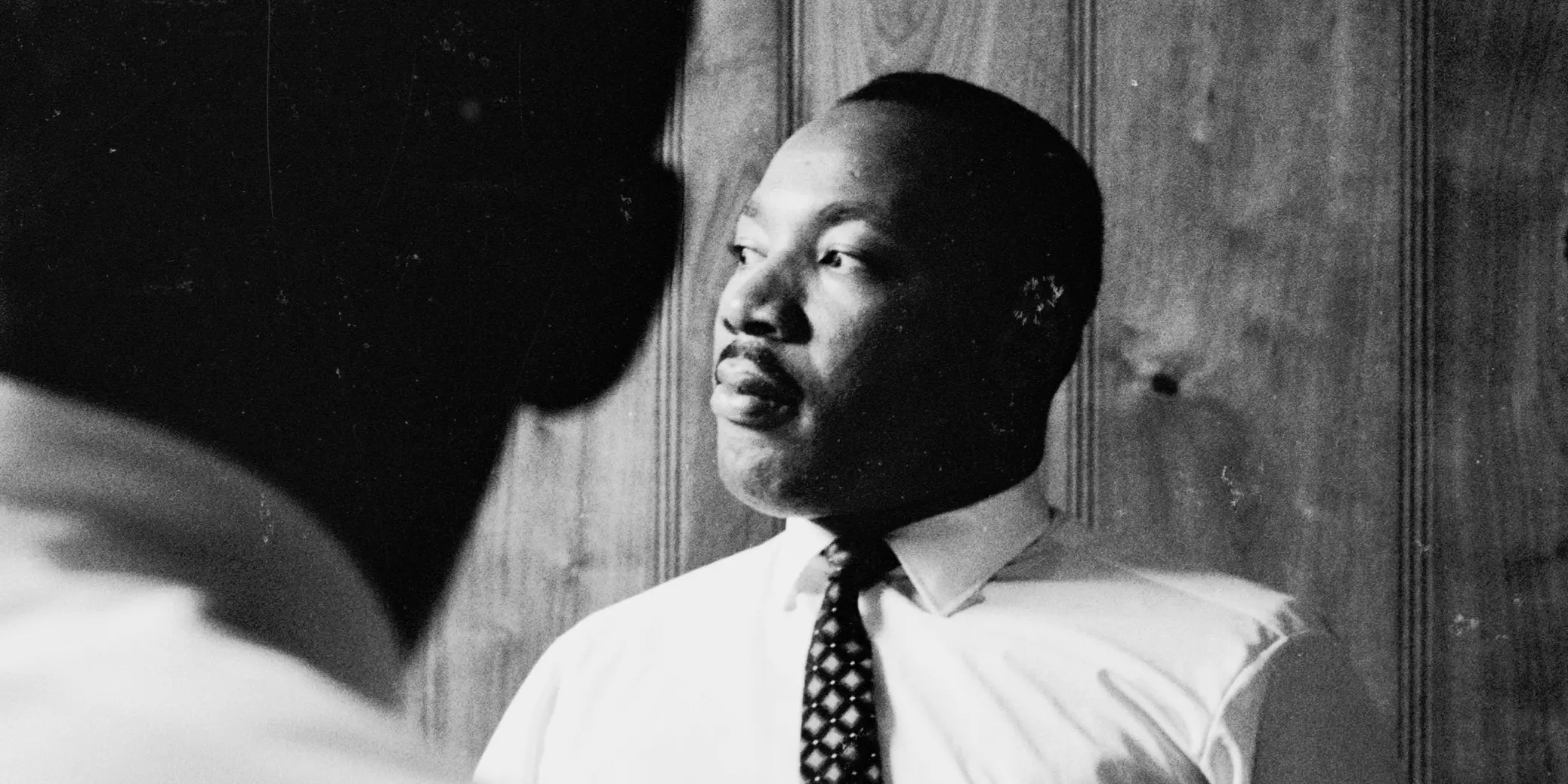Martin Luther King Jr.

Biography
On January 15, 1929, Martin Luther King Jr. was born in Atlanta, Georgia. He grew up in a family that believed deeply in faith, fairness, and helping others. His father was a Baptist minister, and from a young age, Martin learned that words could be powerful—and that standing up for what is right matters. Even as a child, he noticed that Black Americans were treated unfairly, especially in the South. These early experiences helped shape the man he would become.
Martin was a gifted student. He attended segregated schools and entered college at just 15 years old. He studied hard and earned advanced degrees in religion. Along the way, he met mentors who helped him see how faith and justice could work together. While studying in Boston, he met Coretta Scott, a talented singer who shared his dreams of a fairer world. They married, raised four children, and became partners in both family and the fight for justice.
In 1955, a brave woman named Rosa Parks refused to give up her seat on a bus in Montgomery, Alabama. This led to the Montgomery Bus Boycott, where Black residents stopped riding city buses to protest unfair laws. Martin Luther King Jr. was chosen to lead the boycott. For 381 days, people walked to work and school instead of riding the bus. The protest worked. The Supreme Court ruled that segregated buses were unconstitutional. This victory showed the power of peaceful protest.
King believed in nonviolence, inspired by the teachings of Mahatma Gandhi. Even when peaceful protesters were met with anger and violence, King urged people not to fight back. He believed that love and truth were stronger than hate. He once said, “Darkness cannot drive out darkness; only light can do that.”
In 1963, King helped lead the March on Washington for Jobs and Freedom. More than 250,000 people gathered peacefully in front of the Lincoln Memorial. There, King gave his famous “I Have a Dream” speech. He spoke about a future where people would be judged by their character, not the color of their skin. His words inspired millions and helped bring support for important new laws.
Because of the civil rights movement, the United States passed major laws to protect equality. The Civil Rights Act of 1964 made discrimination illegal in schools, jobs, and public places. The Voting Rights Act of 1965 protected the right to vote. In 1964, King received the Nobel Peace Prize for his work. He was only 35 years old.
In his later years, King also spoke out against poverty and war. He believed justice meant not only equal rights, but also fair opportunities for everyone. Sadly, he was assassinated in 1968 while standing up for workers’ rights. His life was cut short, but his message lived on.
King showed the world that courage does not have to be loud or violent. It can be steady, loving, and brave. He taught that the time to do what is right is always now. His life reminds us that even one person, using their voice with honesty and hope, can help change the world.
Martin Luther King Jr.'s relentless commitment to justice, equality, and nonviolence serves as a timeless blueprint for addressing inequality. His work not only reshaped America’s laws but also its moral fabric, proving that peaceful protest can be a powerful catalyst for change. His legacy reminds us that the fight for justice is ongoing, requiring courage, compassion, and collective action. By following his example, we can create a world where equity and dignity are rights enjoyed by all.
?
Dig Deeper
Gain a deeper understanding of Martin Luther King Jr.’s life and his philosophy of nonviolence in this engaging video.
Watch King’s iconic 'I Have a Dream' speech, where he envisioned a future of equality and unity for all.
This video celebrates the life of Dr. Martin Luther King Jr., an inspiring figure who changed the world through peaceful protest and a relentless fight for justice.
Discover more

Rosa Parks
Rosa Parks did not simply stay seated because she was tired, she sat down and refused to move because she was tired of giving in.

Bayard Rustin
Bayard Rustin was the brilliant strategist behind the 1963 March on Washington and a key advisor to Martin Luther King Jr.

Fannie Lou Hamer
Fannie Lou Hamer turned her pain into power, becoming the thunderous voice of the Mississippi Freedom Democratic Party, a driving force behind Freedom Summer, and a national symbol of the fight for voting rights.
Further Reading
Stay curious!
